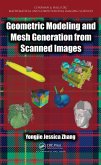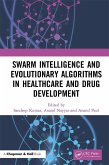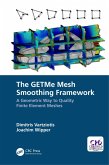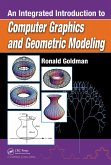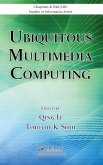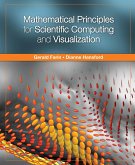Cutting-Edge Techniques to Better Analyze and Predict Complex Physical Phenomena
Geometric Modeling and Mesh Generation from Scanned Images shows how to integrate image processing, geometric modeling, and mesh generation with the finite element method (FEM) to solve problems in computational biology, medicine, materials science, and engineering. Based on the author's recent research and course at Carnegie Mellon University, the text explains the fundamentals of medical imaging, image processing, computational geometry, mesh generation, visualization, and finite element analysis. It also explores novel and advanced applications in computational biology, medicine, materials science, and other engineering areas.
One of the first to cover this emerging interdisciplinary field, the book addresses biomedical/material imaging, image processing, geometric modeling and visualization, FEM, and biomedical and engineering applications. It introduces image-mesh-simulation pipelines, reviews numerical methods used in various modules of the pipelines, and discusses several scanning techniques, including ones to probe polycrystalline materials.
The book next presents the fundamentals of geometric modeling and computer graphics, geometric objects and transformations, and curves and surfaces as well as two isocontouring methods: marching cubes and dual contouring. It then describes various triangular/tetrahedral and quadrilateral/hexahedral mesh generation techniques. The book also discusses volumetric T-spline modeling for isogeometric analysis (IGA) and introduces some new developments of FEM in recent years with applications.
Geometric Modeling and Mesh Generation from Scanned Images shows how to integrate image processing, geometric modeling, and mesh generation with the finite element method (FEM) to solve problems in computational biology, medicine, materials science, and engineering. Based on the author's recent research and course at Carnegie Mellon University, the text explains the fundamentals of medical imaging, image processing, computational geometry, mesh generation, visualization, and finite element analysis. It also explores novel and advanced applications in computational biology, medicine, materials science, and other engineering areas.
One of the first to cover this emerging interdisciplinary field, the book addresses biomedical/material imaging, image processing, geometric modeling and visualization, FEM, and biomedical and engineering applications. It introduces image-mesh-simulation pipelines, reviews numerical methods used in various modules of the pipelines, and discusses several scanning techniques, including ones to probe polycrystalline materials.
The book next presents the fundamentals of geometric modeling and computer graphics, geometric objects and transformations, and curves and surfaces as well as two isocontouring methods: marching cubes and dual contouring. It then describes various triangular/tetrahedral and quadrilateral/hexahedral mesh generation techniques. The book also discusses volumetric T-spline modeling for isogeometric analysis (IGA) and introduces some new developments of FEM in recent years with applications.
Dieser Download kann aus rechtlichen Gründen nur mit Rechnungsadresse in A, B, BG, CY, CZ, D, DK, EW, E, FIN, F, GR, HR, H, IRL, I, LT, L, LR, M, NL, PL, P, R, S, SLO, SK ausgeliefert werden.



